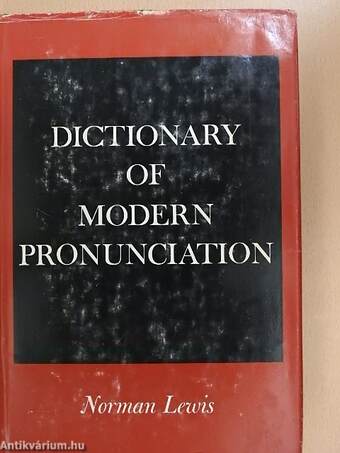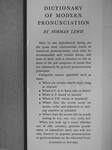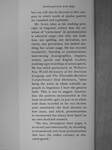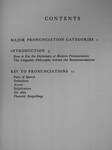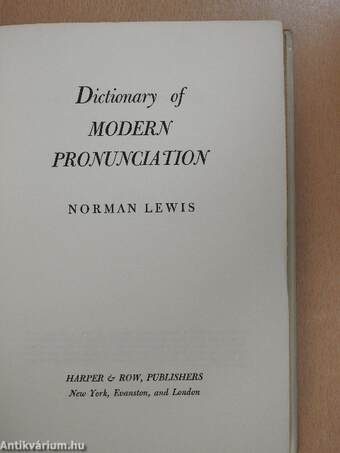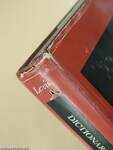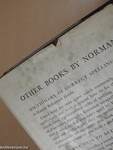1.068.961
kiadvánnyal nyújtjuk Magyarország legnagyobb antikvár könyv-kínálatát

VISSZA
A TETEJÉRE
JAVASLATOKÉszre-
vételek
Dictionary of Modern Pronunciation
| Kiadó: | Harper & Row, Publishers |
|---|---|
| Kiadás helye: | New York |
| Kiadás éve: | |
| Kötés típusa: | Vászon |
| Oldalszám: | 309 oldal |
| Sorozatcím: | |
| Kötetszám: | |
| Nyelv: | Angol |
| Méret: | 22 cm x 15 cm |
| ISBN: | |
naponta értesítjük a beérkező friss
kiadványokról
naponta értesítjük a beérkező friss
kiadványokról
Fülszöveg
DICTIONARY OF MODERN PRONUNCIATION
BY NORMAN LEWIS
Here in one alphabetical listing are the 9,000 most controversial words in American pronunciation, each with its recommended and variant forms, and most of them with a reference to one or more of the 306 categories of words that are influenced by general pronunciation principles.
Categories answer questions such as these:
• When are certain vowels short, long or obscure?
• When is C- or G- hard, soft, or silent?
• When is 5- hissed or buzzed?
• When is TH- voiced or breathed?
• Where does the accent occur on nouns, verbs, and adjectives or varying numbers of syllables?
• Where does the accent fall on words ending in -ary, -ery, -ory, -orily, etc?
When you look up a word, whether out of idle curiosity, genuine puzzlement, or immediate need, you will not only discover its popular pronunciation or pronunciations on the educated level, (Continued, on back flap)
(Continued from front flap)
but you will also be directed to... Tovább
Fülszöveg
DICTIONARY OF MODERN PRONUNCIATION
BY NORMAN LEWIS
Here in one alphabetical listing are the 9,000 most controversial words in American pronunciation, each with its recommended and variant forms, and most of them with a reference to one or more of the 306 categories of words that are influenced by general pronunciation principles.
Categories answer questions such as these:
• When are certain vowels short, long or obscure?
• When is C- or G- hard, soft, or silent?
• When is 5- hissed or buzzed?
• When is TH- voiced or breathed?
• Where does the accent occur on nouns, verbs, and adjectives or varying numbers of syllables?
• Where does the accent fall on words ending in -ary, -ery, -ory, -orily, etc?
When you look up a word, whether out of idle curiosity, genuine puzzlement, or immediate need, you will not only discover its popular pronunciation or pronunciations on the educated level, (Continued, on back flap)
(Continued from front flap)
but you will also be directed to that category in which words of similar pattern are classified and explained.
Mr. Lewis takes as his working principle of linguistic science that the criterion of "correctness" in pronunciation is educated usage—not rule, not tradition, not spelling, not derivation, not clarity, not preciseness, not indeed anything but actual usage. He has traveled extensively, listening to pronunciation, interviewing lexicographers, linguists, writers, speech and English teachers, studying tape recordings of actual speech. He has relied particularly on Webster's New World Dictionary of the American Language and The Thorndike-Barnhart Comprehensive Desk Dictionary, "these being the works in whose scientific approach to linguistics I have the greatest faith. This is not to suggest, however, that the patterns recommended in this book invariably agree in part or in whole with those recorded in the two dictionaries mentioned—the final decision on how many, and which, pronunciations to recommend has always been based on my own firsthand research.
"My aim, throughout these pages, is to record (and inferentially, by recording, to recommend) only those pronunciations that have the widest currency in educated speech."
Vissza



